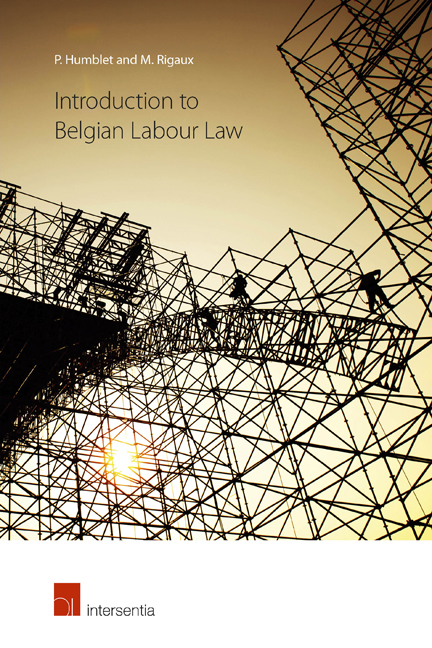Book contents
- Frontmatter
- Preface
- Contents
- List of Abbreviations
- PART I EMPLOYMENT LAW
- I THE CONTRACT OF EMPLOYMENT
- II CONCLUDING THE CONTRACT
- III EMPLOYMENT
- IV TERMINATION OF EMPLOYMENT
- V SPECIAL AND DEVIATING TYPES OF EMPLOYMENT CONTRACTS
- PART II INDUSTRIAL RELATIONS LAW
- I FREEDOM OF ASSOCIATION
- Chapter 1 Historical Overview
- Chapter 2 The Right to Organise
- II TRADE UNIONS AND EMPLOYERS’ ASSOCIATIONS
- III INSTRUMENTS FOR SOCIAL DIALOGUE
- IV FUNDS FOR SOCIAL SECURITY
- V INDUSTRIAL ACTION
- In Cauda
- General Bibliography
- E-addresses
Chapter 1 - Historical Overview
from I - FREEDOM OF ASSOCIATION
Published online by Cambridge University Press: 13 December 2017
- Frontmatter
- Preface
- Contents
- List of Abbreviations
- PART I EMPLOYMENT LAW
- I THE CONTRACT OF EMPLOYMENT
- II CONCLUDING THE CONTRACT
- III EMPLOYMENT
- IV TERMINATION OF EMPLOYMENT
- V SPECIAL AND DEVIATING TYPES OF EMPLOYMENT CONTRACTS
- PART II INDUSTRIAL RELATIONS LAW
- I FREEDOM OF ASSOCIATION
- Chapter 1 Historical Overview
- Chapter 2 The Right to Organise
- II TRADE UNIONS AND EMPLOYERS’ ASSOCIATIONS
- III INSTRUMENTS FOR SOCIAL DIALOGUE
- IV FUNDS FOR SOCIAL SECURITY
- V INDUSTRIAL ACTION
- In Cauda
- General Bibliography
- E-addresses
Summary
The provisions on the freedom of work and industry set out in the Le Chapelier Law were upheld in Article 6 of the Law of 22 Germinal year XI and subsequently adopted in the Napoleonic Penal Code of 1810.
Article 414 of the Penal Code penalised any employer coalition devised to lower wages, with prison sentences ranging from six days to one month, and a fine of between 200 and 3,000 francs. Work stoppages and preventing persons willing to work from working were prohibited by Article 415. Violations were punished with one to three months’ imprisonment, and leaders risked two to five years’ imprisonment. Such penalties were also imposed by Article 416 on employees who threatened employers and their representatives with industrial action.
The Governmental Decree of 16 October 1830 lifted all bans on the freedom of association. This was confirmed by Article 27 of the Constitution, which grants the right to enter into an association or partnership, a right that is not subject to any preventative measures. The Penal Code of 1810 nevertheless retained Articles 414, 414 and 416 because politicians in the 1830s were concerned with political freedom rather than with freedom of association.
The Law of 31 May 1866 abolished these Articles and allowed workers to associate and set up unions. However, the newly added Article 310 of the Penal Code forbade any form of physical or moral coercion which might injure the freedom of work and industry; picketing remained unlawful, thus making effective union action impossible.
On 11 June 1919 the Minister of Justice, Emile Vandervelde, introduced a government bill abolishing Article 310 of the Penal Code, but this expired when Parliament was dissolved on 13 January 1920. It was re-introduced after being amended to cover not only the right to organise and set up a union, but also freedom of association in the broad sense of the word, leading to the Law of 24 May 1921 on the protection of freedom of association. A second law passed on the same day abolished Article 310 of the Penal Code.
- Type
- Chapter
- Information
- Introduction to Belgian Labour Law , pp. 177 - 178Publisher: IntersentiaPrint publication year: 2016



